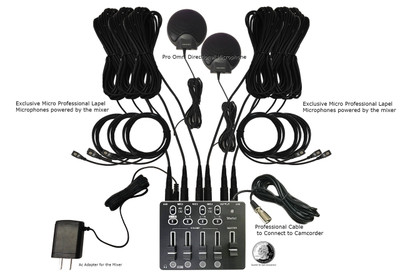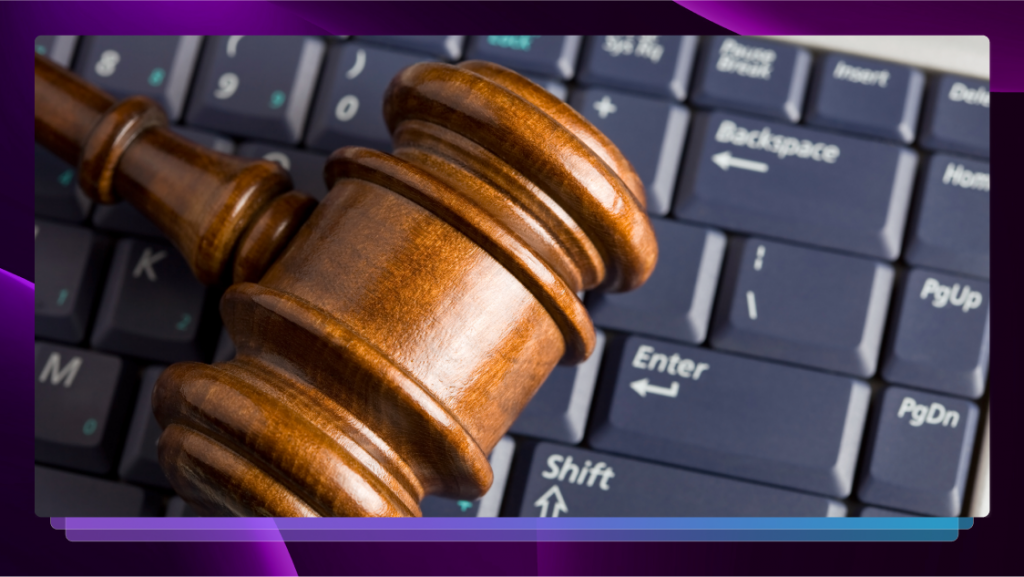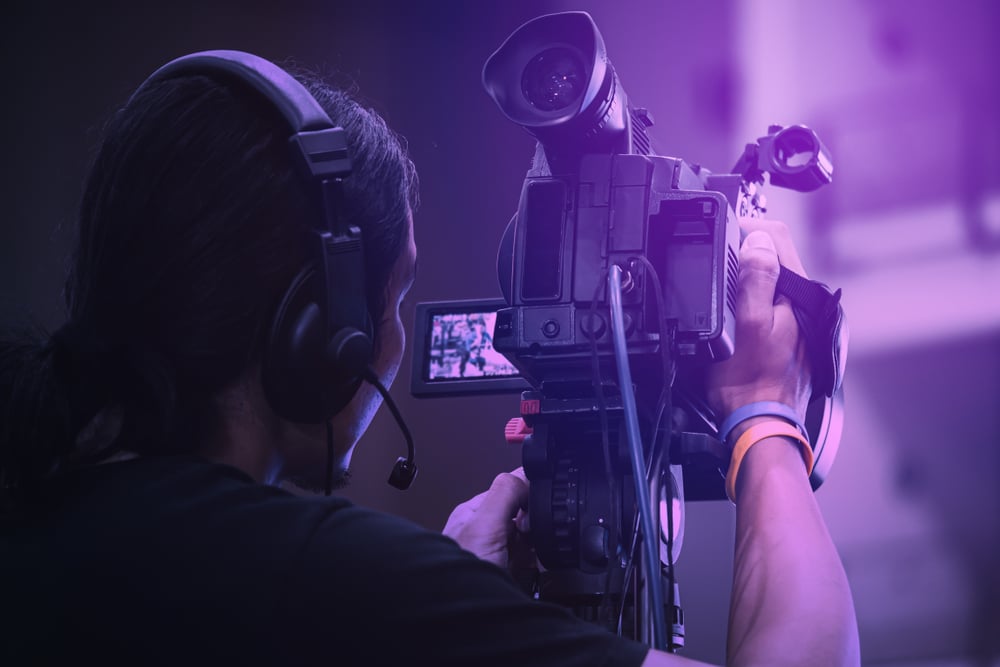Using legal video depositions to increase jury understanding of complex testimony
The Importance of Lawful Video Clip Depositions in Modern Legal Solutions: What You Should Know
Legal video clip depositions have actually ended up being crucial in today's lawful landscape. They give a multidimensional view of witness testimonies that traditional records just can not match. By capturing both spoken and non-verbal communication, these depositions boost the total understanding of a witness's credibility. Nonetheless, the efficiency of video depositions rests on different factors, consisting of conformity with legal criteria and finest techniques (legal video depositions). Checking out these elements discloses their true value in contemporary lawful services
What Are Lawful Video Depositions?
Legal video depositions function as an important device in the lawsuits process. They entail recording witness statements in a video style, recording both non-verbal and verbal interaction. This method permits attorneys to document the disposition, expressions, and responses of witnesses, giving a richer context for the testimony. Normally conducted in a controlled setting, these depositions are led by attorneys who ask inquiries while a court reporter records the discussion. The resulting video clip can be critical for trial prep work, as it makes it possible for lawyers to evaluate the reliability of witnesses and fine-tune their approaches. In addition, legal video depositions can be made use of in different legal contexts, varying from civil disagreements to criminal instances. The aesthetic and acoustic components of video clip depositions improve the discussion of evidence, making it a necessary element in the contemporary lawful landscape. Generally, they contribute significantly to the effectiveness and efficiency of lawful process.

Advantages of Video Depositions Over Traditional Methods
Video depositions offer numerous benefits contrasted to typical approaches of taking witness testaments. One considerable advantage is the capacity to catch both visual and audio elements, providing an extra thorough document of the witness's declarations. This double format enhances quality and permits attorneys to reference specific subtleties throughout trial preparation. In addition, video clip depositions assist in remote involvement, making it simpler for witnesses who might be not available for in-person appearances as a result of geographical restraints or health and wellness issues.Moreover, video clip depositions can accelerate the general deposition process, lowering the time and costs connected with travel and logistics. They also boost access, as taped depositions can be easily shared amongst lawful teams and referenced any time. This comfort contributes to far better situation management and prep work. In general, video clip depositions represent a modern-day, effective strategy to gathering witness testaments, lining up with the advancing demands of the legal career.
The Role of Body Movement and Tone in Testimonies

In lawful video clip depositions, body language and tone play important roles in sharing a witness's integrity and trustworthiness. Nonverbal hints can supply understandings into a witness's emotion, affecting just how their testament is perceived. Understanding the influence of these elements is vital for jurors and lawyers alike when evaluating the reliability of a statement.
Nonverbal Communication Insights
While verbal communication is typically stressed in lawful testaments, nonverbal signs such as body movement and tone play an important function in communicating integrity and feeling. Viewers of depositions may keep in mind that a witness's posture, gestures, and faces can significantly influence perceptions of integrity. For instance, regular eye call might indicate self-confidence, while avoiding look might suggest dishonesty or pain. Similarly, the tone of voice-- its quantity, pitch, and pace-- can impart sensations of genuineness or unpredictability. Lawyers must be in harmony with these nonverbal signals, as they often give essential context that enhances talked words. Recognizing these nuances can boost the performance of depositions and affect the outcome of lawful procedures.
Emotional Tone Influence
The psychological tone communicated during lawful testaments considerably affects just how a witness is viewed. Body language, vocal inflections, and face expressions play important roles in shaping the narrative of a testament. A witness displaying self-confidence with steady eye get in touch with and a calm tone can infuse a sense of integrity and interaction. Alternatively, indications of anxiety, such as fidgeting or an unstable voice, might result in suspicion concerning their account. The subtleties of psychological expression can influence the analysis of facts, making it crucial for legal experts to recognize these hints. In video clip depositions, the aesthetic and auditory parts integrate, stressing the significance of emotional tone in communicating genuineness and truthfulness within the lawful process.
Integrity and Trustworthiness
A crucial consider establishing integrity and reliability during testimonies hinges on the witness's body movement and intonation. that site Viewers often count on non-verbal hints-- such as eye call, stance, and motions-- to assess a witness's genuineness. For circumstances, a witness who maintains eye get in touch with and shows open body movement might be viewed as even more straightforward and reliable than one that stays clear of eye contact or shows up shut off. Additionally, tone of voice plays an important role; a steady, tranquil tone can reinforce the trustworthiness of the testament, while changes in pitch or quantity may raise uncertainties. Inevitably, the mix of body language and vocal tone substantially affects how a witness's declarations are obtained and translated in a legal context.
Best Practices for Performing Video Clip Depositions
Carrying out video depositions requires mindful preparation and implementation to ensure a clear and reliable presentation of testament. It is important to choose a silent, well-lit location to minimize distractions and safe optimal video clip quality. The tools ought to be examined beforehand, including cams, microphones, and lights, to prevent technological problems throughout the deposition.Next, parties entailed must examine the format and treatments ahead of time, ensuring that everybody recognizes their roles. The deponent must be oriented on the process, consisting of just how to respond clearly and concisely.Additionally, keeping a professional temperament throughout the session is important. This consists of refraining from speaking over one an additional and validating that all questions are guided properly. It is important to record the deposition in a format that enables for simple playback and evaluation, maintaining the honesty of the testimony for future use.
Legal Considerations and Conformity Issues
How do legal considerations and conformity problems influence the performance of video clip depositions? Attorneys must navigate a complex landscape of policies, making certain that video clip depositions stick to jurisdictional policies and requirements. Conformity with legislations concerning privacy, permission, and tape-recording techniques is vital. For circumstances, acquiring explicit permission from all parties included is needed to stay clear of legal repercussions.Additionally, the admissibility of video proof in court can pivot on compliance with procedural needs. Making certain that the devices used meets technological requirements is also vital, as low quality can undermine the deposition's reliability.Moreover, lawyers should recognize any kind of certain state legislations that govern video clip depositions, as these can vary significantly. Failing to attend to these considerations can not just jeopardize the honesty of the deposition however also influence the overall instance approach, inevitably impacting the client's lawful outcomes.
Just How Video Depositions Influence Jury Assumption
While video depositions can work as powerful devices in legal process, their influence on court perception is considerable. The aesthetic and auditory elements this post of video clip recordings give jurors with a more thorough understanding of witness attitude, integrity, and emotional feedbacks. This multimedia method can boost the jurors' ability to evaluate the integrity of testimony contrasted to typical text-based transcripts.Moreover, video depositions enable jurors to observe body movement, intonation, and facial expressions, all of which can influence their analysis of the witness's declarations. The presence of a witness on display can humanize them, fostering empathy and connection, which might guide jurors' point of views. Conversely, a witness who shows up incredibly elusive or unreliable on video clip might bring about negative perceptions that influence a jury's choice. Eventually, the vibrant nature of video clip depositions plays an essential role in shaping how jurors translate evidence and reach their decisions.
The Future of Video Clip Depositions in Legal Method
As improvements in modern technology remain to improve the lawful landscape, the future of video clip depositions is positioned for substantial advancement. Technologies such as artificial knowledge, digital fact, and boosted video clip conferencing devices are anticipated to enhance the deposition procedure and enhance availability. Lawyers may utilize AI-driven analytics to evaluate witness credibility and case strength more effectively.Moreover, the integration of virtual fact can enable juries to experience immersive simulations of depositions, offering deeper context and understanding. In addition, the fad towards remote depositions is likely to persist, offering better versatility for attorneys and customers alike.As remote work comes to be significantly normalized, video depositions will likely come to be common practice, minimizing prices and time constraints related to standard techniques. Overall, these technical improvements promise to boost the effectiveness, effectiveness, and access of video depositions in lawful method, ultimately changing exactly how legal experts prepare for test.
Frequently Asked Inquiries
Just How Much Do Lawful Video Depositions Commonly Expense?

Can Video Depositions Be Used in Any Kind Of Kind Of Instance?
Video depositions can be used in numerous kinds of situations, including civil, criminal, and family members regulation. Their flexibility permits lawyers to present witness statements successfully, adapting to the certain demands of different legal situations.
What Devices Is Required for a Video Clip Deposition?
To conduct a video clip deposition, essential equipment includes a high-quality electronic camera, microphone, lighting, and a reliable recording gadget. Additionally, a computer system with editing software application might be required for post-production and formatting the final video.
The length of time Does a Typical Video Clip Deposition Last?
A normal video deposition lasts between two to four hours, relying on the intricacy of the instance and the variety of questions postured. Extended sessions may take place, yet breaks are generally incorporated for participant comfort.

Are Video Depositions Admissible in Court?
Video clip depositions are normally admissible in court, supplied they comply with lawful requirements and rules of evidence. Their use improves clarity and maintains witness testimony, helping in the judicial process during tests and hearings. Legal video clip depositions have actually ended up being necessary in today's lawful landscape. In addition, legal video clip depositions can be used in numerous legal contexts, ranging from civil disagreements to criminal cases. In addition, video clip depositions assist in remote engagement, making it easier for witnesses that might be not available for in-person looks due to geographical restrictions or wellness issues.Moreover, video clip depositions can expedite the general deposition process, decreasing the time and expenses linked with traveling and logistics. Ensuring that the tools used meets technological standards is also essential, as bad high quality can weaken the deposition's reliability.Moreover, attorneys must be aware of any particular state laws that govern video depositions, as these can vary substantially. In addition, the fad toward remote depositions is likely to continue, offering greater flexibility for customers and lawyers alike.As remote job ends up being progressively normalized, video clip depositions will likely end up being basic technique, lowering expenses and time constraints linked with conventional approaches.